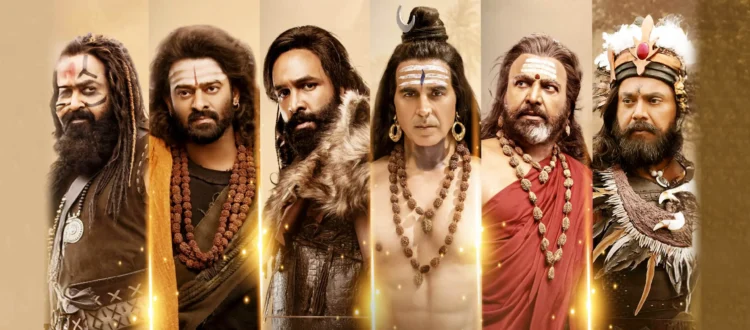Ahead of the much-awaited release of the mythological drama Kannappa, the film’s producers have taken a firm stance on protecting the integrity of their work. Recently, the production house issued a strong public statement warning against any misuse, distortion, or defamatory acts aimed at the film or its associated stakeholders. They made it clear that such negative actions would invite strict legal consequences, reinforcing their commitment to uphold the dignity of the project.
Kannappa, directed by Mukesh Kumar Singh and featuring Prabhas, Mohan Babu, Akshay Kumar, Mohanlal, with Vishnu Manchu in the lead role, is a devotional period drama that has generated considerable buzz due to its subject matter and production scale. The makers have been keen to emphasize that the film is a product of lawful and legitimate creative effort, backed by considerable research and sensitivity towards its religious and cultural context. Scheduled for release on June 27, the film has been positioned by 24 Frames Factory, the production house behind the project, as a responsible and respectful attempt to engage audiences with a rich mythological narrative.
In their public notice, the producers urged audiences, critics, and commentators to approach the film with an open mind. They requested that viewers “watch the film first, appreciate its substance, understand the intent and comment on it with responsibility,” cautioning against the dangers of preconceived notions or vendetta-driven criticism. This request highlights the tension often seen in the release of films with religious or cultural themes, where strong emotions and divided opinions can sometimes lead to attempts to misrepresent or undermine the creative work.
The makers also highlighted the fundamental balance between freedom of expression and protection against defamation under Indian law. While acknowledging that the right to free speech and expression is enshrined in Article 19(1)(a) of the Constitution of India, they underscored that this right is not absolute. Drawing on judicial precedents, the producers pointed out that deliberate and harmful attacks that damage the reputation of a creative work fall outside the ambit of protected speech. In such scenarios, they stated, legal remedies are available and would be pursued vigorously to safeguard the interests of the creators and affiliated parties.
This declaration by 24 Frames Factory reflects a growing trend in the Indian film industry where producers are increasingly aware of the potential for online trolling, misinformation, and baseless criticism to affect a film’s reception and commercial prospects. By putting out this statement in advance, the makers of Kannappa are attempting to establish a clear legal and ethical boundary around discourse related to their film, deterring any hostile or malicious campaigns. It also signals their preparedness to defend the film’s artistic vision and commercial viability against negative external forces.
Moreover, this notice serves as a reminder of the intricate relationship between art, culture, and societal values in contemporary India. When films delve into subjects rooted in mythology and devotion—key elements of the country’s cultural fabric—they often invite scrutiny from diverse quarters including religious groups, cultural custodians, social commentators, and the general public. The producers’ proactive response aims to stem the tide of misinformation and protect a creative work intended to inspire and enlighten, rather than offend.
As the release date of Kannappa approaches, it remains to be seen how audiences and critics will receive the film. However, this firm statement from the production house sets a precedent and sends a clear message: while open dialogue and critique are welcome, any attempt to distort or defame the film will be met with swift and decisive legal action. This approach might well become a model for future projects that straddle creative expression and cultural sensitivity in an increasingly polarized social landscape.























